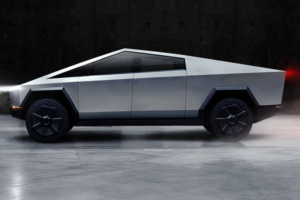Over the decades, artificial intelligence (AI) has changed almost every factor of our way of life. The automotive industry is not left behind; AI is creating a drastic revolution, even more so than was expected about a decade ago- not just to refine but redefine the customer experience. This article reveals the impact of AI on the automotive customer journey—from the purchase stage and post-purchase support regarding the maintenance of the car to the multiple topics of customers’ queries.
1. Personalization Driven By AI
One of the great effects that AI has had on the automotive sector is the concept of personalization. Automakers are turning to AI to allow personalized customer experiences, which gives unique solutions based on preferences and behaviors shown by the customer. This trend will likely increase with the advancement in technology that will see even more personalized experiences in the automotive industry.
- Smart Car Features: AI vehicles can learn driver habits and adjust the settings accordingly. With positioning seats, personal climate control, and preferences for infotainment, these features are in every other modern car.
- Personalized Marketing Recommendations: Depending on their previous interactions and web activities, AI may recommend which type of car model, specific features, or the way to finance it would better please the respective customer.
2. Smarter Customer Support and Service
This next emerging trend of AI will redefine smarter customer support and service, as activities are more likely to be faster. AI has made this field more efficient in service delivery, ensuring fixed problems within the shortest time possible, hence customer satisfaction. Thus, a service like EpiCar.ai is an example of an AI-powered solution that betters customer interactions.
- Virtual Assistants and Chatbots: AI virtual chatbots are programmed to give clients instant assistance, which saves time from long telephone calls or exchanging emails. This gives a frictionless experience in customer service.
- Predictive Maintenance: AI can predict when a vehicle needs maintenance with sensor data and vehicle history. This is a more proactive model where customers avoid unexpected breakdowns and add more to their experience.
3. Improved Safety and Security
Safety is essential in the automotive industry, and AI is contributing to the improvement observed in it. AI-ignited modern safety features continue to become more sophisticated, which offers drivers and passengers more protection.
- Advanced Driver Assistance Systems (ADAS): In this case, advanced driver assistance systems (ADAS) apply AI approaches to advanced assistance for many safety functions, from adaptive cruise control to lane-keeping assistance and automatic emergency braking systems—all designed to give the motorist more confidence behind the wheel and reduce any possibility of mishap.
- AI-Based Security Systems: In this way, AI can help in the case of vehicle theft or unauthorized access by detecting the behavioral pattern as something wrong. Among the AI aspects that can cater to security are voice and facial recognition.
4. Autonomous Driving and Mobility Services
Perhaps the most futuristic application of AI in the automotive industry is autonomous driving. Even though complete automation is not common, AI has provided enough groundwork for developing safer and more efficient autonomous vehicles.
- Self-Driven Cars: It’s a vehicle designed to be controlled by onboard AI algorithms, enabling them to navigate the road, detect all roadblocks, and eventually make real-time decisions. This can revolutionize transport globally, evidently reducing accidents and traffic gridlocks.
- Mobility as a Service (MaaS): AI has a crucial role within MaaS, a form of service at the user’s request. AI offers the capability of optimizing the route and reducing waiting times through ride-sharing platforms.
5. AI-Powered Design and Manufacturing
AI is not only changing customer experience, but car designs and manufacturing methods too. These advancements lead to improved processes of manufacturing that save more resources and generate less waste, along with better quality vehicles.
- Generative Design: Automakers can explore new designs with the help of AI, processing huge amounts of data. The technology allows automakers to generate designs of much lighter and more efficient vehicles that meet customer expectations.
- Automated Quality Control: Uses AI to check for defects and quality standard assurance inside the manufacturing space. This will reduce the number of defective vehicles reaching customers and reduce customer satisfaction.
Conclusion
The future of AI in the automotive customer experience is promising with loads of opportunities. From providing more individualized experiences and better customer service to offering more safety and the possibility of self-driving, AI revolutionizes the automotive sector. With advancing technology, it is safe to believe that more innovations, and perhaps better ones, will improve customer experience. This will lead to a more secure, efficient, and customer-focused automotive industry.











